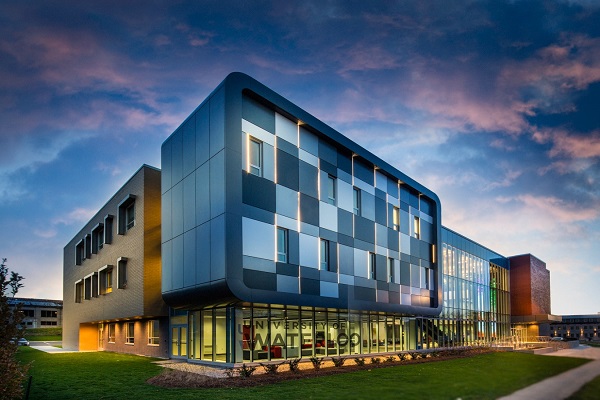University of Waterloo experts lend their expertise to the UN IPCC climate report
After a six-year process, the leading world body for the assessment of climate change, the UN’s Intergovernmental Panel on Climate Change (IPCC), has released their final Synthesis Report that summarizes what we know about climate change and how to reduce greenhouse gas emissions. The key takeaway – we must act now to secure a livable future for all.
The University of Waterloo is home to six of the IPCC experts who make up this colossal team effort, including Dr. Sarah Burch, Dr. Susan Elliott, Dr. Luna Khirfan, Dr. Linda Mortsh, Dr. Hannah Tait Neufeld and Dr. Michelle Rutty, who led or contributed to chapters in the Mitigation of Climate Change report and Impacts, Adaptation and Vulnerability report.
Sarah Burch
Dr. Sarah Burch
>Professor, Faculty of Environement
>Canada Research Chair, Sustainability Governance and Innovation
>Executive Director, Waterloo Climate Institute
“The IPCC is a scientific collaboration like almost no other,” says Burch, professor in the department of Geography and Environmental Management. “Hundreds of scientists from around the world work together to synthesize the work of thousands more, all with the goal of providing the strongest possible evidence to governments about how our climate is changing, and what we can do about it.”
The researchers’ contributions highlight the breadth of climate change knowledge and expertise at Waterloo. They cover important topics such as accelerating the transition in the context of sustainable development to national and subnational policies and institutions. Their work also spans issues of cities, settlements and key infrastructure, Indigenous health and evaluating health adaptation, and climate change in North America. Their work defines our understanding of the climate crisis. It acts as the backbone for governments at all levels to develop climate related policies in addition to informing the negotiations at the United Nations Framework Convention on Climate Change, impacting everything from international treaties to social movements.
The report confirms the growing challenge of keeping global warming to 1.5°C as greenhouse gas emissions continue to rise. It identifies climate-resilient development as a key solution. This involves the integration of both adaptation and mitigation measures.
In other words, responses to protect against floods, fires and heat waves, and opportunities to move to net-zero, like switching to renewable energy sources. Pursuing both adaptation and mitigation simultaneously and quickly will reduce emissions while providing benefits like support for vulnerable and intentionally exploited populations.
Hannah Neufeld
Dr. Hannah Tait Neufeld
>Professor, Faculty of Health
>Canada Research Chair, Indigenous Health, Wellbeing and Food Environments
>Member, Waterloo Climate Institute
“The health and equity impacts of climate change for Indigenous Peoples make mitigation efforts critical, including policies and actions that take into consideration the effects of colonization. The relevance of these knowledge systems, which are holistic and tied to relationships between all living things, cannot be ignored at this critical moment,” says Tait Neufeld, professor in the School of Public Health Sciences.
Realizing equitable and effective climate action will require political commitment, coordinated policies, international cooperation, ecosystem stewardship and inclusive governance. Moving forward, every action matters.
“To avoid the worst impacts, faster action is needed in every sector and in every region right now,” says Burch. “But the report offers an important story of hope. We already have the technologies and tools we need to drastically cut our emissions, while making our communities healthier, more resilient and more prosperous.”

